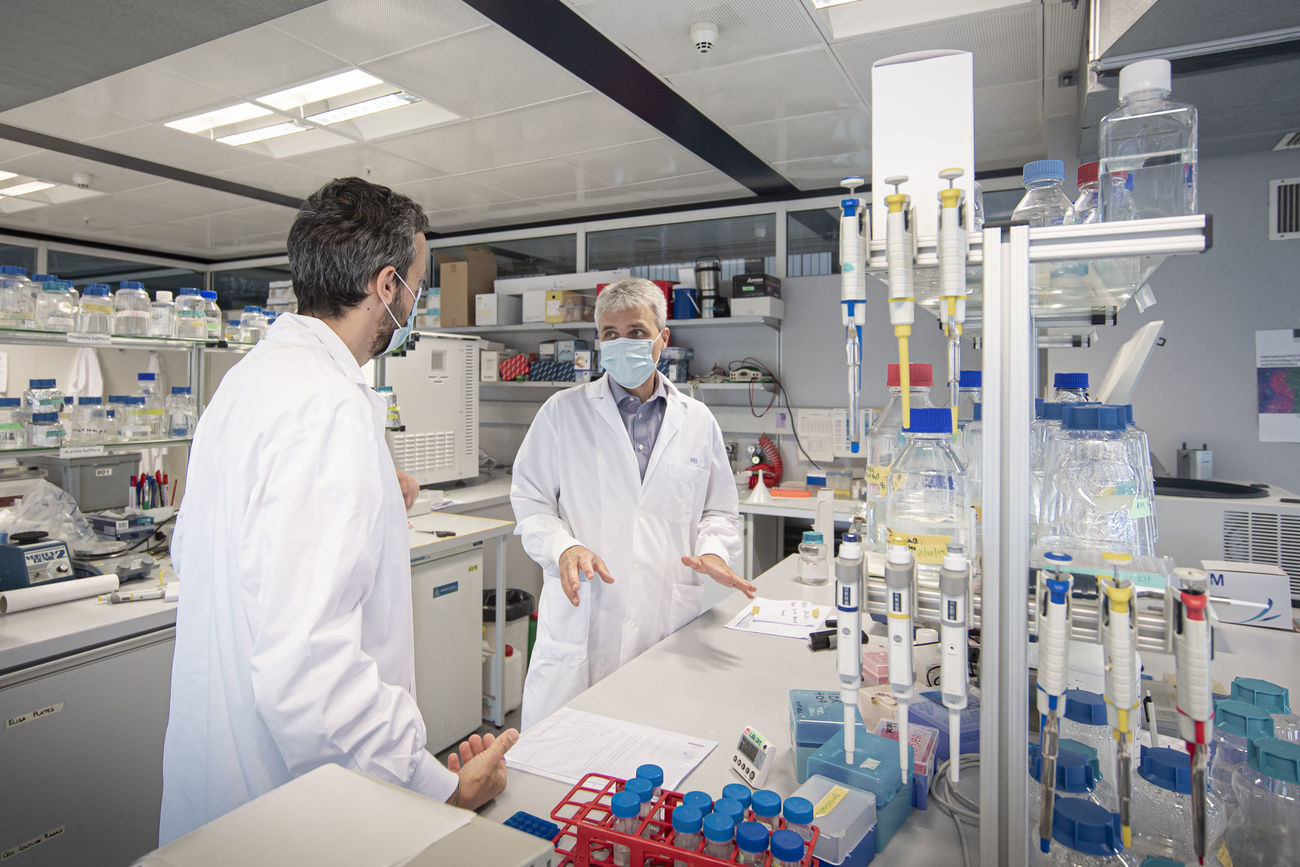
Switzerland budgets CHF28 billion for research and education

A total of CHF28.1 billion ($31.7 billion) will be invested in Swiss education, research and innovation over the next four years, parliament has confirmed.
The funds will mostly go towards universities and other institutes of higher education – as well as vocational training, which is the backbone of the Swiss education system, with two-thirds of school leavers opting for this route.
The CHF28.2 billion is CHF2 billion more than for the period 2017-2020. The government has previously stated that the aim is to ensure that Switzerland “remains an international leader in the field of education, research and innovation”.
During parliamentary debates there had been controversy over whether the Swiss 3R Competence CentreExternal link, that aims to implement the 3R principles (replace, reduce and refine) for animal experiments in academic research, should receive the bulk of CHF12 million in extra funding for research institutions of national importance. In the end, the proposal for additional funds was axed to ensure a speedy of approval of the budget.
Higher spending
Swiss spending on education remains relatively high. Statistics released earlier this year showed that the country spends considerably more than the European Union (EU) on education, the second-largest budget item: 16.5% of the total compared with 10.2% in the EU.
Currently Swiss universities are closed for on-site teaching, and have moved to distance learning, due to the coronavirus pandemic. Research activities – Swiss scientists are also active in coronavirus-related research – can continue but are subject to strict health guidelines. Schools remain open.

More
Switzerland spends more than the EU on education

In compliance with the JTI standards
More: SWI swissinfo.ch certified by the Journalism Trust Initiative

















![The four-metre-long painting "Sonntag der Bergbauern" [Sunday of the Mountain Farmers, 1923-24/26] had to be removed by a crane from the German Chancellery in Berlin for the exhibition in Bern.](https://www.swissinfo.ch/content/wp-content/uploads/sites/13/2025/12/01_Pressebild_KirchnerxKirchner.jpg?ver=a45b19f3)











You can find an overview of ongoing debates with our journalists here . Please join us!
If you want to start a conversation about a topic raised in this article or want to report factual errors, email us at english@swissinfo.ch.